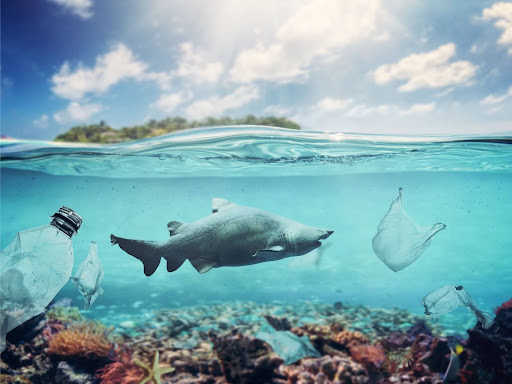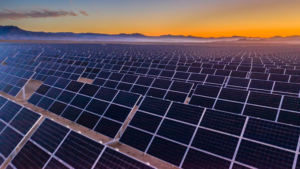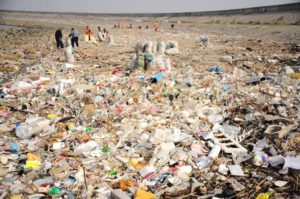In recent years, the issue of plastic pollution has escalated into a global crisis, with the oceans bearing the brunt of this environmental disaster. The convenience of plastic, a material designed to last forever, has led to a surge in its production and use, with devastating consequences for marine ecosystems. This article delves into the impacts of plastic pollution on ocean life and outlines ten simple yet effective strategies to mitigate this growing threat.
Understanding the Scale of the Problem
The oceans are the lifeblood of our planet, home to a diverse range of species and ecosystems. However, the infiltration of plastic waste into these critical habitats has reached alarming levels. It’s estimated that over 8 million tons of plastic enter the oceans each year, wreaking havoc on marine life and ecosystems. From the smallest plankton to the largest whales, no creature is immune to the dangers posed by plastic pollution.
Plastic debris, ranging from large items like bottles and bags to microscopic particles known as microplastics, has been found in the most remote areas of the ocean, highlighting the pervasive nature of this pollution. The effects of plastic pollution are multifaceted, leading to physical harm through ingestion and entanglement, as well as chemical harm as plastics leach toxic substances into the water.
The Impact on Marine Life
Marine animals often mistake plastic debris for food, leading to ingestion that can cause internal blockages, starvation, and death. Sea turtles, for example, cannot distinguish between jellyfish, a primary food source, and floating plastic bags. Similarly, seabirds ingest plastic pieces, mistaking them for fish eggs, which can lead to malnutrition or starvation. The situation is further exacerbated by microplastics, which are consumed by plankton and small fish, introducing plastic into the food chain and potentially affecting human health through seafood consumption.
Entanglement in plastic waste is another significant threat, with animals such as seals, dolphins, and whales getting caught in discarded fishing nets and lines. These entanglements can cause severe injuries, infections, and even death. The presence of plastic in the oceans also facilitates the transport of invasive species, which attach to floating debris and can disrupt native ecosystems.
10 Simple Ways to Reduce Plastic Pollution
- 1. Refuse Single-Use Plastics: The most straightforward step is to avoid products that are designed to be used once and then discarded. Opt for reusable alternatives wherever possible.
- 2. Use Reusable Shopping Bags: Plastic bags are among the most common types of marine debris. Switching to reusable bags can significantly reduce this source of pollution.
- 3. Choose Sustainable Packaging: Support companies that use eco-friendly packaging and avoid products that come in excessive plastic wrapping.
- 4. Participate in Beach Cleanups: Join community efforts to clean up local beaches, rivers, and waterways. Every piece of trash removed from the environment is one less hazard for marine life.
- 5. Recycle Wisely: Proper recycling can prevent plastic waste from ending up in the ocean. Familiarize yourself with local recycling guidelines to ensure you’re recycling correctly.
- 6. Support Bans on Harmful Plastics: Advocate for and support legislation that aims to reduce or eliminate the use of harmful plastics, such as microbeads in personal care products.
- 7. Educate Yourself and Others: Awareness is key to solving the plastic pollution crisis. Educate yourself about the issue and share your knowledge with friends and family.
- 8. Reduce Your Carbon Footprint: Plastic production is energy-intensive. By reducing your overall consumption and carbon footprint, you indirectly reduce the demand for new plastic. Understanding and participating in initiatives like plastic credit can further contribute to this effort, offering a way to offset plastic use by investing in environmental recovery and recycling projects. TontoTon offers a unique approach to combating plastic pollution through its certified plastic credit system. This initiative fosters a community-based solution for the collection and treatment of post-consumer non-recyclable plastic waste. By participating in TontoTon’s program, individuals and organizations can contribute to reducing the amount of non-recyclable plastics, thereby supporting efforts towards achieving plastic-free coastlines. This aligns with the broader goal of reducing your carbon footprint and plastic consumption. TontoTon’s efforts have already resulted in the collection and treatment of 2,721 tons of orphan plastics, showcasing the tangible impact of their work in areas like Sihanoukville, Cambodia.
- This approach not only helps in minimizing the amount of plastic entering our oceans but also promotes a more sustainable and responsible use of resources.
- 9. Support Ocean-Friendly Organizations: Many nonprofits are working tirelessly to address plastic pollution. Consider donating to or volunteering with organizations focused on cleaning up and protecting the oceans.
- 10. Advocate for Systemic Change: While individual actions are crucial, systemic change is necessary to tackle the root causes of plastic pollution. Support policies and initiatives that promote circular economy principles, aiming to keep materials in use and out of the oceans.
Moving Forward
The journey towards reducing plastic pollution in our oceans is a collective one, requiring action from individuals, communities, corporations, and governments worldwide. By adopting the strategies outlined above, we can all contribute to a healthier, plastic-free ocean. The transition to a more sustainable relationship with plastic starts with awareness and is propelled by the choices we make every day. Let’s choose a path that leads to the preservation and protection of our precious marine ecosystems.
As we move forward, it’s essential to remember that every small action counts. Whether it’s choosing a reusable water bottle, participating in a local cleanup, or advocating for environmental policies, our collective efforts can lead to significant positive change. The fight against plastic pollution is not just about saving marine life; it’s about ensuring the health and well-being of future generations and preserving the natural beauty of our planet. Together, we can turn the tide on plastic pollution and safeguard our oceans for years to come.
Conclusion:
In conclusion, the battle against plastic pollution in our oceans is not just an environmental issue; it’s a call to action for every individual, community, and nation. The devastating impacts of plastic on marine life underscore the urgent need for collective efforts to reduce our plastic footprint. By adopting simple yet effective measures such as refusing single-use plastics, participating in cleanups, and supporting sustainable policies, we can make a significant difference. The shift towards eco-friendly alternatives, like reusable bags and containers, represents a positive step towards mitigating plastic waste and its harmful effects on ocean ecosystems. Moreover, educating ourselves and others about the importance of ocean conservation and innovative solutions like plastic credit can play a pivotal role in addressing the broader environmental crisis. As stewards of the planet, it is our responsibility to protect and preserve our oceans for future generations. The journey towards a plastic-free ocean is challenging, but with determination, innovation, and collective action, it is an achievable goal. Let us commit to making conscious choices that contribute to the health and vitality of our blue planet, ensuring a legacy of thriving oceans teeming with life.





Be First to Comment